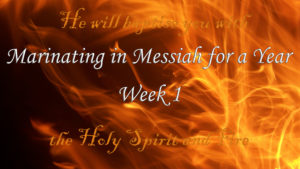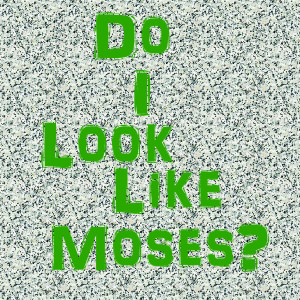Like Little Children Part 1–The Status of Children in the Ancient World
In the modern world, children are viewed in some truly idealistic ways regarding inherent innocence and honesty. Does that POV carry any weight in the Bible or in biblical times? What exactly did Yeshua/Jesus mean when He told His disciples that they must become like little children? Was He preaching what many see as an impossible ideal, or something altogether attainable based on the role assigned to children in the ancient world?
Transcript–forgive any glaring errors
************
Hi, this is Tyler Dawn Rosenquist and welcome to Character in Context, where we explore Scripture in its original historical context and talk about how God is communicating His expectations to us as His image-bearers—Because, after all, if all this information doesn’t bring us closer to God’s character, it’s just useless brain candy..
You can catch my blogs at www.theancient bridge.com and my children’s context teachings at contextforkids.com. I also have two youtube channels where you can listen to the archives of past Character in Context broadcasts as well as watch my video teachings for adults and kids, which can be accessed through my websites, as can my books and my family curriculum series.
And remember my weekly disclaimer—scholars are an important part of the Kingdom, but the Kingdom is bigger than scholarship. We need all sorts of servants, and we need to give them the respect they are owed according to the area in which they have the expertise—whether that is in working with the homeless, in the missions field, getting justice for the oppressed, in their field of bible study, etc.
Romans 13:7 Pay to all what is owed to them: taxes to whom taxes are owed, revenue to whom revenue is owed, respect to whom respect is owed, honor to whom honor is owed.
Anyone who is functioning in their calling and devoting their life to God is worthy of our respect, whether we agree with them 100% on this and that or not.
This week and next I want to talk about a section of Scripture that seems really endearing but actually has a rather dark and tragic side to it that makes it even more profound—specifically Yeshua’s (Jesus’s) command to “Let the little children come to me.”
Let’s look at the different NT passages related to children, I hope you like Scripture, because we will be reading a lot of it:
Luke 18:15-17 15 Now they were bringing even infants to him that he might touch them. And when the disciples saw it, they rebuked them. 16 But Jesus called them to him, saying, “Let the children come to me, and do not hinder them, for to such belongs the kingdom of God. 17 Truly, I say to you, whoever does not receive the kingdom of God like a child shall not enter it.”
(^^right after tax collector parable—whoever exalts himself….)
Matt 18 At that time the disciples came to Jesus, saying, “Who is the greatest in the kingdom of heaven?” 2 And calling to him a child, he put him in the midst of them 3 and said, “Truly, I say to you, unless you turn and become like children, you will never enter the kingdom of heaven.4 Whoever humbles himself like this child is the greatest in the kingdom of heaven. 5 “Whoever receives one such child in my name receives me, 6 but whoever causes one of these little ones who believe in me to sin, it would be better for him to have a great millstone fastened around his neck and to be drowned in the depth of the sea.
Matt 19 13 Then children were brought to him that he might lay his hands on them and pray. The disciples rebuked the people, 14 but Jesus said, “Let the little children come to me and do not hinder them, for to such belongs the kingdom of heaven.” 15 And he laid his hands on them and went away.
Mark 10 13 And they were bringing children to him that he might touch them, and the disciples rebuked them. 14 But when Jesus saw it, he was indignant and said to them, “Let the children come to me; do not hinder them, for to such belongs the kingdom of God. 15 Truly, I say to you, whoever does not receive the kingdom of God like a child shall not enter it.” 16 And he took them in his arms and blessed them, laying his hands on them.
We have, potentially, three different occasions here, some recounted in more than one Gospel, and we have two important things going on. (1) we have the disciples being told in no uncertain terms that they must become like little children and (2) we see the disciples practically driving the kids and their mothers away from Yeshua. We will talk about the first point this week, and next week we will discuss the second point. This week will be a reality check about the way children were seen in the ancient world, and next week will be a sadder delving into the reality of being a child in the first-century world and why the disciples would feel they had excellent reason to be driving them away.
This is one of those times where our modern context almost completely obscures the reality of what it was to be a child in the ancient world, and how they were perceived. We are bringing a ton of modern baggage into these passages, and so we miss the meaning entirely.
“Oh, the trusting nature of a child, the honesty, and the innocence–yes, that is how we must be.”
The problem is that kids aren’t all that innocent and honest, and they are more naive than trusting. Children lie. I know they lie, mine will be 18 this month and I can tell you some stories about that. Like the time they cut a hole in the basement carpet because they felt something under the rug and convinced themselves it was a floor safe and when their father and I got home they told the most insane lie about what happened. Evidently, they thought I would believe their wild story about how our cat Monty, who was named after a dead horse (long story) got his claw stuck in the carpet and they had to free him. And boy did they stick to that tale for a disturbingly long time. Five years later and I still remember it whenever we leave them at home alone.
The thing is, the Bible says nothing about children being inherently virtuous. That’s a modern romantic ideal that has been thrust on the little monsters. Come on parents, you know I am telling the truth. No ancient documents glorified childhood the way we do now.
“Foolishness is bound up in the heart of a child; The rod of discipline will remove it far from him.” (Pro 22:15, NASB)
That’s right–they are fools and it has to be disciplined out of them. In context, there are no Bible verses glorifying children or whitewashing their undisciplined little booties.
Okay, so what was Yeshua talking about here? Well, it was about social status and not about mythical childlike qualities. Children had no legal rights and no honor status of their own to speak of. In general, children were neither seen nor heard and stayed at home with their mothers until the sons were old enough to work and the daughters were old enough to marry. They weren’t out playing kick the can—for more reasons than just the obvious.
Times were tough in the first century—it wasn’t like the monarchy before the exile. Families were often barely holding on to their land, which was being snatched up by the elites when loans were defaulted on. And not only the Roman elites, but the Jewish elites as well—they were preying on one another. This meant that children were working full time. In the ancient world, everyone worked seven days a week and from dawn till dusk, with the exception of the Jews, who observed the Sabbath. But children, although considered a blessing by the Jews, were also just cogs in the desperately needed family workforce. They grew up fast, if they grew up at all—and we will discuss that next week.
There was nothing romantic about childhood—it was rough. Certainly boys from some communities learned the Scriptures, but in general, they had to spend the bulk of their time working hard.
Now, the disciples had just been arguing about “Who will be the greatest in the Kingdom” which they still imagine is happening according to their Messianic paradigms of being under a Davidic king, or if He is REALLY serious about dying, well then, who is taking over. Please not Peter, that dude does and says some pretty messed up stuff.
Seriously, could you even begin to imagine how they would balk at having Peter be their boss? He was bold, but he also had this bad habit of promising way more than he could deliver. He wasn’t the most humble guy in the universe—yet.
“Seriously, not Peter. And not James and John–those dudes want to commit genocide against anyone who doesn’t receive them. Those three really scare us, Lord.”
But Yeshua rebukes them by calling over a little child who has no honor rating whatsoever—meaning no position or importance. No authority. No reason to be taken seriously apart from who his daddy is, and because he is still a child, it isn’t like people are rushing to hear what he has to say just because he does have an honorable daddy.
“You have to be like this little guy. You have to be willing to be nothing. You must be willing to have zero status in this world because my Kingdom isn’t about exalting the rulers of this world, but in giving dignity and life to the least of these. Heck, why do you even think I was spending time with you guys? Because of your innate leadership abilities, warrior skills, and education? Don’t you get it yet? I am not interested in what the world values and what the world sees in people. I am interested in the people themselves.”
We still get it all wrong. We want to be great in the Kingdom by having authority. That’s how the world system works–but we are called to be servants. That isn’t just an expression, to be a servant, it’s a paradigm buster–if we allow it to be.
Because, really, children in those days were servants and not served. Oh sure, when they were teenie they were served—of course, but as soon as they were useful they would be put to work and they would be told what to do. They didn’t make their own decisions, their own plans. They didn’t decide the rules of the house. They were disciplined into obedience.
the disciples wanted to be great in the eyes of the world, but Yeshua was telling them that it wasn’t going to happen that way, and really—it couldn’t. We will never be great in the eyes of the world because we can’t be. What we have to make sure of, however, is that we are not stumbling blocks by training to attain heavenly things in worldly ways.
*****************
Matt 18:4 Whoever humbles himself like this child is the greatest in the kingdom of heaven.
That is the verse in all those “become like a child” passages that gets lost in all our idealism. Humbling ourselves like a child, becoming nothing the way a child was nothing in the ancient world, precious only to his own family members. But again, we have these romantic ideas about childlike faith, childlike innocence, childlike honesty.
Impossibility of becoming innocent. This is such a terrible burden that we lay on people. I have spoken in the past, right here on HNR actually, about being a former porn addict—from the age of 8 to 32, and my story is not uncommon, even among women.
When we tell people that they need to become innocent like little children in order to enter into the Kingdom of Heaven, it can lead to some really disastrous misunderstandings. I will never, ever be a person who is unacquainted with the horrors of pornography. I harmed and rerouted parts of my brain that were supposed to be directed toward holiness. I can no more watch movies or tv shows with passionate kissing or sex in them than an alcoholic can go hang out in bars.
Impossibility of becoming absolutely trusting. Children are not absolutely trusting, they are just incredibly naïve and easily fooled. There is a big difference between being easily manipulated and being trusting. Trust has to be firmly rooted in wisdom or it is not trust. We trust God not because we are hopeful after He has proven to be unfaithful in the past but because He has always proven Himself to be worthy of it.
We’ve already covered the fictional honesty of children.
When we say that folks need to be like this non-existent ideal, we set them up for failure, but if we go to the context of the passages and tell folks that if they are true disciples they won’t be great in worldly terms, I think we can all achieve that. Most of us don’t even have to use our imaginations to figure out that we will never be rich, famous, powerful, or respected in a worldly sense. We have to just be satisfied with having decent reputations—even if we didn’t start out so well. Our testimony isn’t made up of how we became great after being small, but how we gave up on being great so that we could be subservient and submissive to God in order to meekly serve those around us, bearing patiently with them and considering all people to be greater than ourselves.
Remember the lead in to the first passage we looked at in Luke—whoever exalts himself will be humbled and whoever humbles himself shall be exalted. Bam! Hey, look at this little child. The two concepts aren’t unrelated. Children weren’t like they are today, all full of ideas about their rights and armed with the phone number to social services if they get spanked after going at the side of their parents’ new car with lava rocks, but I don’t want to think about that right now.
Pro 17:2 A servant who deals wisely will rule over a son who acts shamefully and will share the inheritance as one of the brothers.
Ambition—servants aren’t supposed to be ambitious, they are to have their hearts and minds focused on serving their masters. If the master wants to elevate them, he can, but that is entirely up to the Master.
Whenever I think of ambition in the Bible, Absalom is the first person to come to mind. More than any other human being in Scripture, he shows the poison of someone who isn’t satisfied to wait on God. His father David is the perfect example of someone who was willing to wait on God, and who was exalted in time—God’s time and certainly not his own. Absalom, however, was ambitious and threw the Kingdom into a brief civil war.
I have to imagine that that was the sort of situation that Yeshua was needing to head off—the tendency of humans to jockey for position when there is a power vacuum.
Ambition is brutal and unloving—and has zero place in the Body of Messiah, where we are supposed to be zealous for good works and not for positions of authority. We are supposed to desire the greater gifts, but only so that we can witness to the infiltration of the Kingdom of Heaven into the kingdoms of earth one person at a time.
That, as it turns out, wasn’t what the disciples wanted. Heck, no one in their right mind would want what Yeshua was talking about and what He still demands from us. Serving Him is generally thankless, glamourless, and poorly or not at all paid work that meets with heartache, betrayal, and rejection. You will work and work and work and it will never be good enough, and some folks will bleed you dry without ever thinking about giving you anything in return, and some will only give you grief in return. And they (and we) were told to expect that and to handle it with grace. I want you to think about something a child does have more of than adults and hangs on to for a lot longer. That’s hope. Kids and dogs can be abused and will still hold out hope that you will be kind to them the next time if they love you. It is amazing what abusive adults can put a child through and they will still retain hope of having their love returned in kind one day. That is part of the humility of a child, that they will take the blows while still longing for and being receptive to repentance on the part of the abuser. It’s an amazing thing how a child can just do that, even though that hope is damaging them and making the hurt far worse. I think that’s why people mistakenly say that kids are resilient, it isn’t that they are resilient, it’s just that they hope with such abandon. That we take so much advantage of that hope, it’s shameful, but we need to learn something from it. As adults, we can grow through the Spirit into a place where we can hope and love the way children hope and love.
Like a child, we have to be willing to be hurt for the sake of a world full of abusers who need God desperately. No, no one should hurt a child and I pity the ones that do because Scripture says it would be better to have a donkey-stone tied around their neck and be cast into the sea (describe that). But children also have always known throughout the history of the world (until just recently) that it was an accepted part of life for those with no social standing. Now, I am not saying that all kids were abused, don’t get me wrong here, but I am saying that Yeshua specifically told his disciples that they would be abused—but they must still be loving, joyful, peaceful, patient, kind, generous, trustworthy/trusting, gentle and self-controlled. We must be what the abusers are not or can not be at this point in their lives.
Like children in the ancient world, we must consider ourselves to be so lowly and socially insignificant that we will not dare get all prideful and huffy and puffy when people oppose us, ridicule us, or walk over us. A child would depend on his father to take care of any slights to the family—and so must we. It was the father in the ancient world who had all the respect and standing and responsibility to protect the family members and not the children.
If we can hurt after being hurt without lashing out, retaliating, and sinning in return, we make it easier for those who are being drawn to the Father through Yeshua to repent. When they hurt us and we hurt them back, they are more likely to feel justified than wrong. Of course, we need to know the difference between people who enjoy being hurtful and need to be cut off from relationship, and those wounded individuals who harm others without thinking yet regret it very deeply almost immediately. I used to be one of the latter group, and the one thing I had going for me was a few people who were incredibly patient and kind to me. They took the low seat at the table in order to help me out. I can also remember the people who didn’t help me out—I remember and it inspires me not to be anything like them.
The humble in the Kingdom—they are at risk, they are vulnerable, they are not flashy or particularly noticed, and they are often treated badly while the prideful attract a crowd and keep themselves safe while sometimes damaging others. It is very tempting to gravitate toward being in the latter group. It feels better and it looks better and it intrinsically makes more sense to want that. But we aren’t called to that kind of life—which is the antithesis of the Kingdom, which is why we see that sort of behavior on tv.
Copyright 2019 Tyler Dawn Rosenquist
No part of this can be reproduced without the author’s permission
thebestoftimesisnow@yahoo.com



